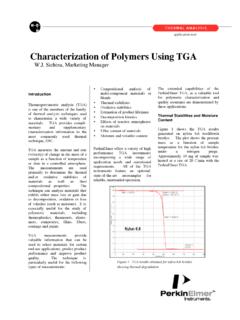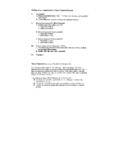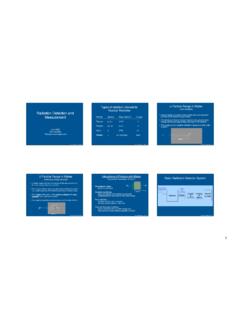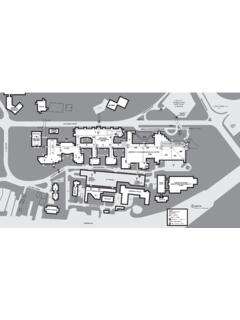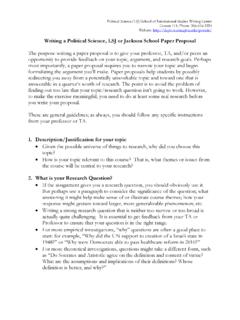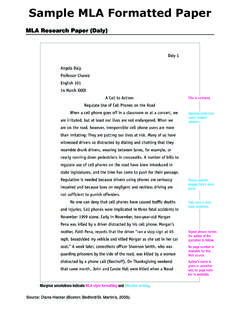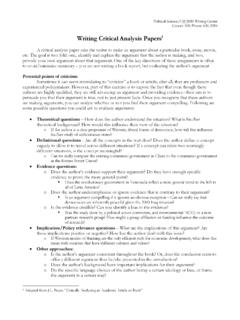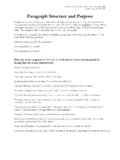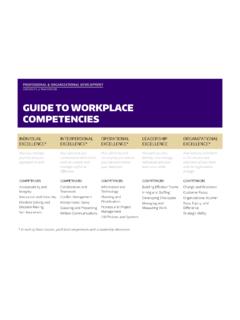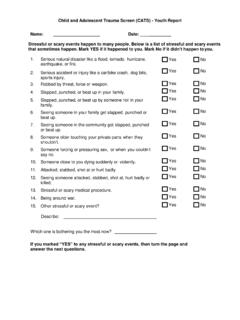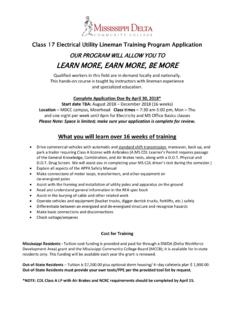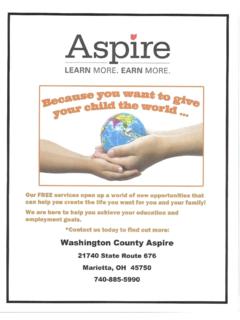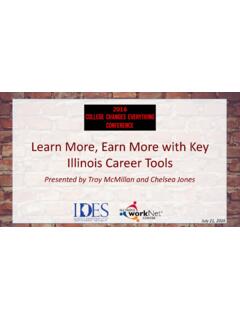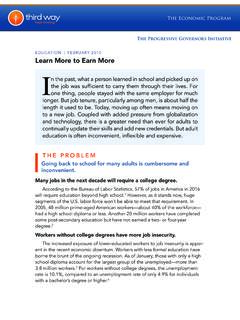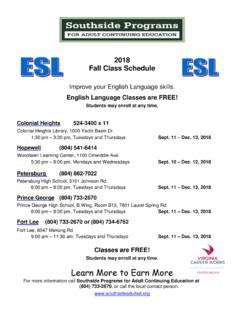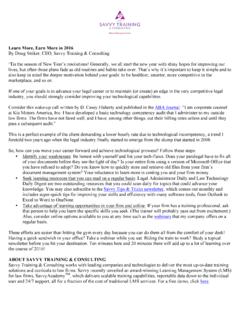Transcription of LEARN MORE EARN MORE - University of Washington
1 Bachelor s DegreeMaster s DegreeDoctoral DegreeAlso called a baccalaureateMeans you have a broad base of knowledge and skills in a specific areaRequires four to five years of studyIncludes general education classes (such as math and English composition), a major (a focused area of study) and electivesExamples of bachelor s degrees: Bachelor of arts degrees ( ) - awarded in the humanities and arts Bachelor of science degrees ( ) - awarded in sciences Bachelor of fine arts ( ) awarded in fine arts such as drama or musicYour area of study, or degree program, is noted on your transcript (the official record of your grades), such as a bachelor of arts (English).
2 Means you have gained more depth of knowledge in your field of studyRequires approximately two years of study beyond the bachelor s degreeSome programs require you to research, write and submit a thesis, or research paper, to graduateExamples of master s degrees: Master of science degree ( ) Master of arts degree ( ) Master of public health ( ) Master of business administration ( ) Master of public administration ( ) Master of fine arts degree ( ) the highest degree awarded in fine artsMeans you are an expert in your field who can design, carryout and assess researchRequires four to six years of study beyond the bachelor s degreeMost programs require you to research, write and submit a dissertation, an extensive research paper, to graduateHighest degree you can attain in most fieldsExamples of doctorate degrees.
3 Doctor of philosophy ( ) most common doctorate awarded Doctorate in education ( ) awarded to educatorsDoctorates also called professional degrees Doctor of medicine ( ) Doctor of dentistry ( ) Doctor of pharmacy ( ) Juris doctor ( ) - for lawyers/judges fPeople with doctoral degrees and professional degrees, such as doctors, lawyers, dentists and pharmacists, make even more . Those with doctoral degrees make an average of $ million over a career, while those with professional degrees make an average of $ million. fYou can t be a marine biologist or a social worker, psychologist, doctor, teacher, pharmacist or architect without a graduate degree.
4 Many fields require or strongly encourage master s degrees. Fields such as education pay more to employees with graduate degrees. fFor every 100 graduate degrees a college or University in Washington grants, businesses import another 125 people with graduate degrees. Bottom line: Washington has a shortage of people with graduate degrees. If you have one, you may have a better chance at getting a job in state. fWhile much of your undergraduate experience is about learning your graduate education will be about doing, researching, teaching, creating and innovating.
5 FYou will get to work with very cool faculty doing incredible things. Graduate students work in every lab across the UW with scientists who are pioneering everything from robotic surgery techniques to stem cell treatments for heart disease to cancer vaccines. Students contributed to 87 percent of the 467 patent applications that the UW filed in 2014. fYou can change the world. UW graduate students and alumni are making their communities even better places to live. Do you use to take the bus? That was created by a UW graduate student. With Master s Degrees Make anaverage of $ Million over a lifetiMe,coMPareD to those With Bachelor s Degrees Who Make an average of $ s a Difference of $400, MOREEARN MOREG raduate school is all about exploring what you love.
6 Whether it s medicine, literature, airplanes or archeology, in graduate school, you will become an expert in your subject area. The best way to prepare is to discover what fascinates you. Explore. Do. LEARN . Expand your Tour the UW campus. Visit the library. Hang out on the Quad. Picture yourself in Get a summer internship in an area of interest. Work as a camp counselor. Volunteer on a farm or food bank. Help out in a research Interview someone in a field that interests you. Talk with your family physician. Chat with a coffee shop Use the internet. Listen to world music online.
7 Visit the Smithsonian Institution website. Take an online language Take the most challenging courses you can Running Start, Advanced Placement, honors - and keep your grades Participate in the arts. Visit a museum. Attend a performance at the UW or in your community. Watch a documentary. Go to a poetry Read. Read the news, classic novels, contemporary nonfiction, plays, poetry, science fiction. LEARN about the world around SCHOOL DIPLOMABACHELOR S DEGREEMASTER S DEGREEDOCTORATE ( , , , , )Dental AssistantDental HygienistDentistAccounting ClerkAccountantFinancial AnalystChild Care WorkerPreschool TeacherK-12 Teacher/ Community College TeacherPrincipal/Superintendent/ College ProfessorCarpenterContractorArchitect/Co nstruction ManagerLab AssistantLab ManagerMedical ScientistDancerChoreographer/ProducerPro fessor/Higher Ed AdministratorMuseum Archivist/TechnicianMuseum CuratorStage HandActorTheater Producer/DirectorElectricianElectrical EngineerBiomedical EngineerNurse AideNurseNurse Manager or SupervisorHospital AdministratorBiotech ManagerResearch
8 AssociateBiochemist or BiophysicistOffice ClerkOffice ManagerCompany OwnerRetail SalespersonFashion DesignerCommercial or Industrial DesignerHospital AideNuclear Medicine TechnologistOccupational Health and Safety SpecialistRadiologistWaitperson/CookChef Restaurant OwnerTruck DriverAeronautical DrafterAerospace EngineerFitness TrainerAthletic TrainerPhysical TherapistPhysical TherapistProbation OfficerCounselorPsychologistComputer Repair TechnicianComputer Systems AdministratorComputer Systems AnalystComputer ScientistSource: Bureau of Labor StatisticsWhat yoU can Do With a Degree7 things to Do noW fThe University of Washington offers more than 370 graduate and certificate programs in 120 academic departments across three campuses.
9 FGraduate students make up one-quarter of all UW students, and they come from 48 states and 90 countries, with 60 percent of master s and 39 percent of doctoral students from Washington . fTo ensure that our students earn more than a degree, the UW Graduate School offers a range of opportunities so they can develop the leadership, communication and personal skills needed for a rewarding life and academic, research or professional career. For instance, our graduate school prep course helps undergraduates and returning students set goals and craft their applications (photo on front).
10 FFind out how UW graduate students and alumni are making a difference in their communities at
